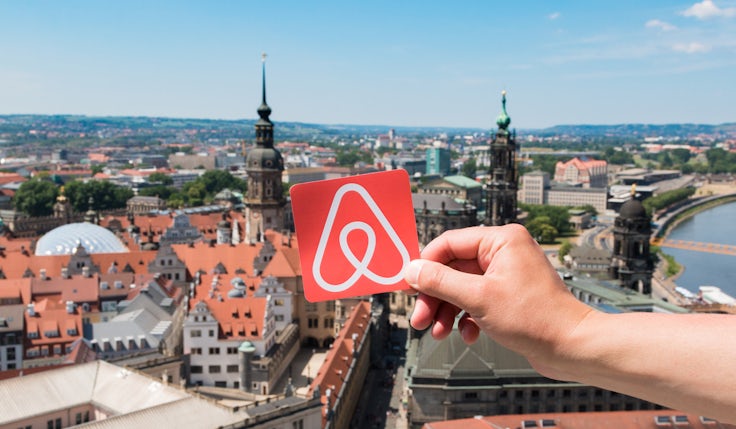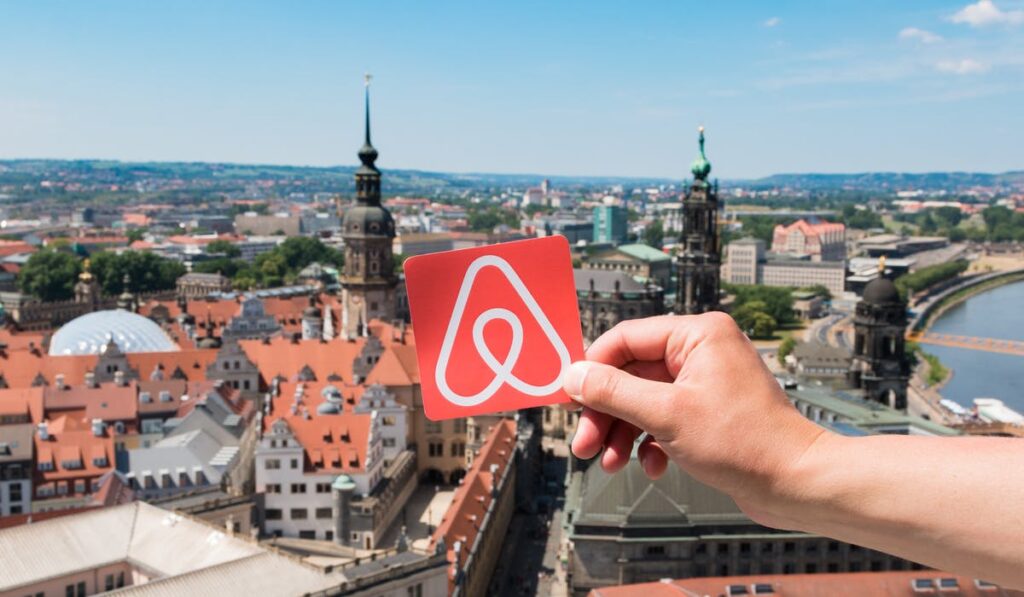
Airbnb has said it will invest up to $250m (£199m) in launching, scaling and marketing new businesses in 2025, as the home rentals company looks to expand its product offering.
While he didn’t give specific details about what these products might be, co-founder and CEO Brian Chesky said he wants Airbnb to be “similar to Amazon”, in that it will be “one place to go for all of your traveling and living needs”.
He referenced the fact Amazon started selling books before adding DVDs, CDs, toys, fashion and a whole host of other goods to its offer. Chesky said Airbnb will “probably follow that path”.
Speaking on its Q4 2024 earnings call yesterday (13 February), he explained: “We’re going to start initially with things very closely adjacent to travel. So, when people book an Airbnb, there’s a lot of experiences and services that would make their stay more special.”
He added that the business will eventually “move further and further away from [its] core”.
If you think about how we’ve been managing our overall marketing dollars, the majority of the spend is on brand marketing.
Ellie Mertz, Airbnb
Experiences is one area Airbnb has already expanded into, but Chesky admitted it needs to be “a bit more aggressive in marketing them”. Ahead of relaunching its experiences offer, he outlined other downfalls it will be addressing, including the fact they were hard to find, they were not merchandised as compellingly as they could be and there wasn’t enough integration with social media, which he described as a “great distribution channel”. He said Airbnb is also “completely rethinking the kind of supply we’re going to have”.
Part of the ambition for broadening its offer is to increase the frequency with which people use its services. While Airbnb app was used on 1.6 billion devices last year, people typically only use it once or twice a year. “I would love for people to use Airbnb once or twice a week,” Chesky said.
Airbnb has said it plans to invest $200-$250m (up to £199m) in the business this year, with the “bulk” to be spent on marketing and product development.
“In terms of marketing, we will obviously be spending to build out the teams to drive the supply operations around those new offerings,” said CFO Ellie Mertz.
“We will also be investing behind awareness of the new products and demand generation. And then on the product side, we will be slightly increasing our pace of headcount growth across our product development organisation such that we can move more quickly across our road map and support these new businesses.”
Global expansion
Airbnb’s five core markets – the UK, US, Canada, France and Australia – account for 70% of its gross booking value. But in order to drive growth it has been upping marketing in target markets such as Japan and Brazil, where it believes there is “sizable opportunity”.
While overall marketing investment has gone up – Airbnb increased sales and marketing spend by 23.5% in 2024, from $1.7bn (£1.3bn) in 2023 to $2.1bn (£1.6bn) last year – Mertz said the growth of investment in its core markets has been “relatively modest” as it focuses on increasing brand marketing in newer markets.
“If you think about how we’ve been managing our overall marketing dollars, the majority of the spend is on brand marketing. And the way to think about brand marketing is that it is effectively a fixed amount of spend for each market in terms of the minimum amount that you need to spend for that market to be efficient,” she said.
In 2022, Airbnb shifted marketing spend from performance channels into brand building, a move its former CFO Dave Stephenson described as “incredibly effective” a year later.
For a market like the US, Mertz said Airbnb has a “base fixed amount” that is dedicated to brand, on top of which it “surgically adds performance marketing”.
“As we look forward to 2025, the way that we’re able to maintain strong growth in the core markets but also incrementally invest in a higher level of market intensity for the expansion markets is not to grow the core marketing spend faster than revenue. The way we would do that is our lack of strong reliance on performance marketing, which would be entirely variable.”
Mertz said investment in new markets has had a “meaningful impact” on its growth. She described Brazil as a “huge success case”. “That’s a market that we’ve been focused on, in particular, with adding brand marketing over the last two years. And we’ve been able to materially increase the scale of our business in that country,” she said.
Airbnb has also been focused on Japan, which it began targeting with brand marketing in Q4, although Mertz said building scale here will take longer.
“[For] each of our targeted markets, we have to factor in where the market is, the level of awareness and consideration we have among local travellers, and the level of product optimisations we need to make to make sure that we are appropriately addressing the local audience,” she explained.
Overall, Airbnb generated revenue of $11.1bn (£8.8bn) for 2024, an increase of 12% year-over-year. Net income was $461m, while adjusted EBITDA was $765m.


